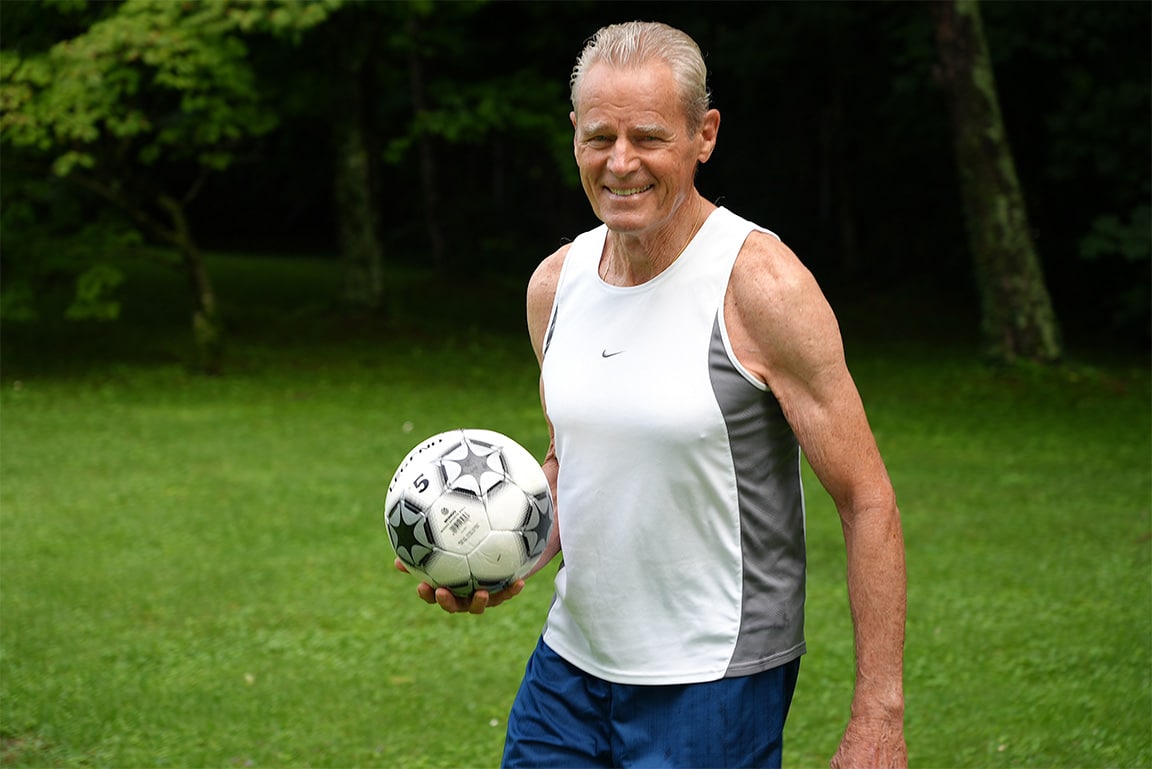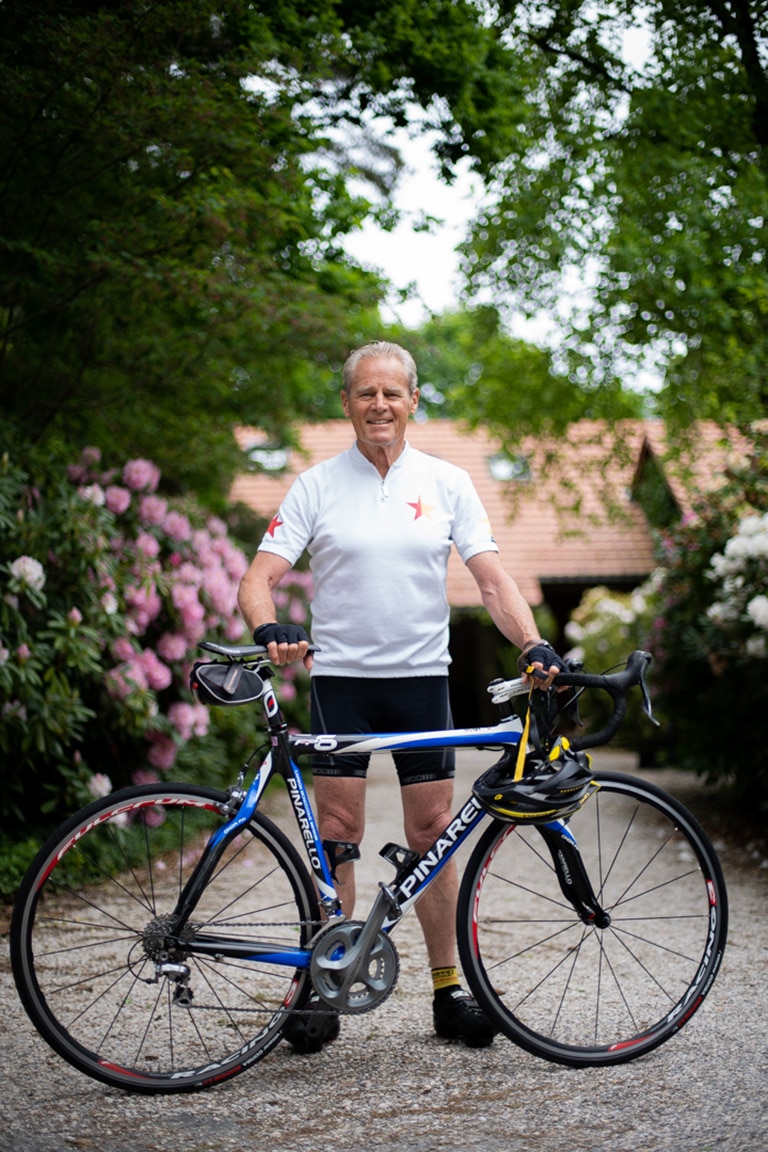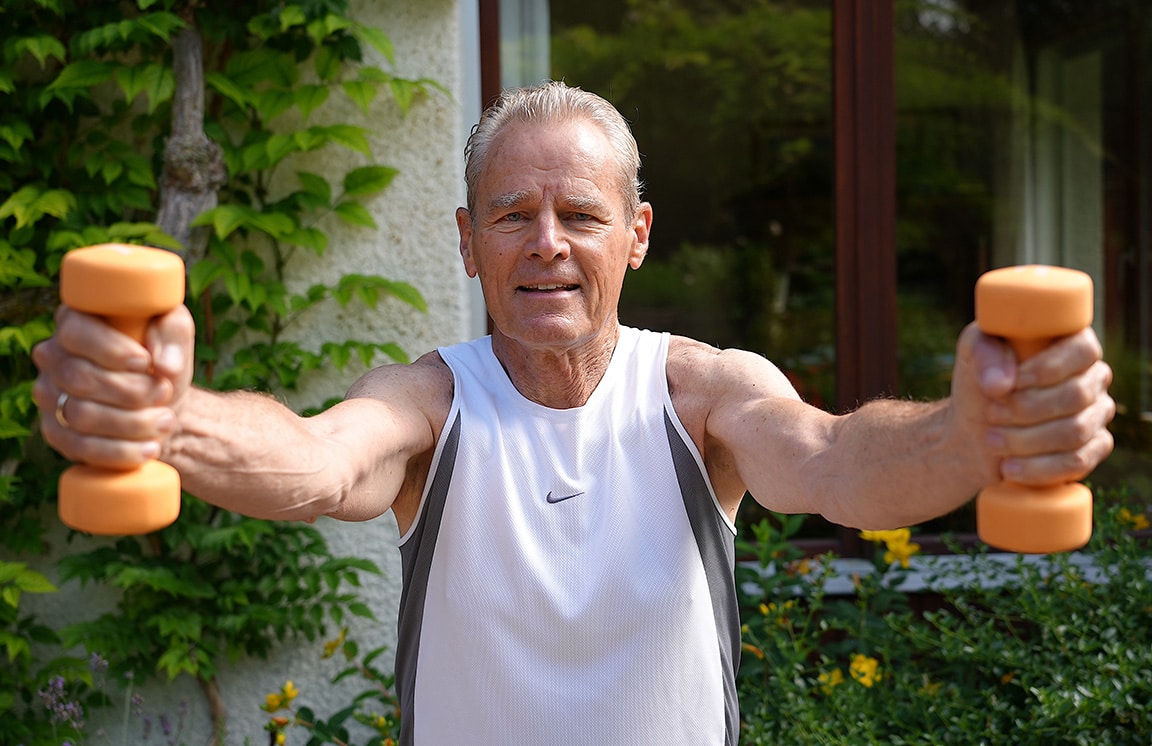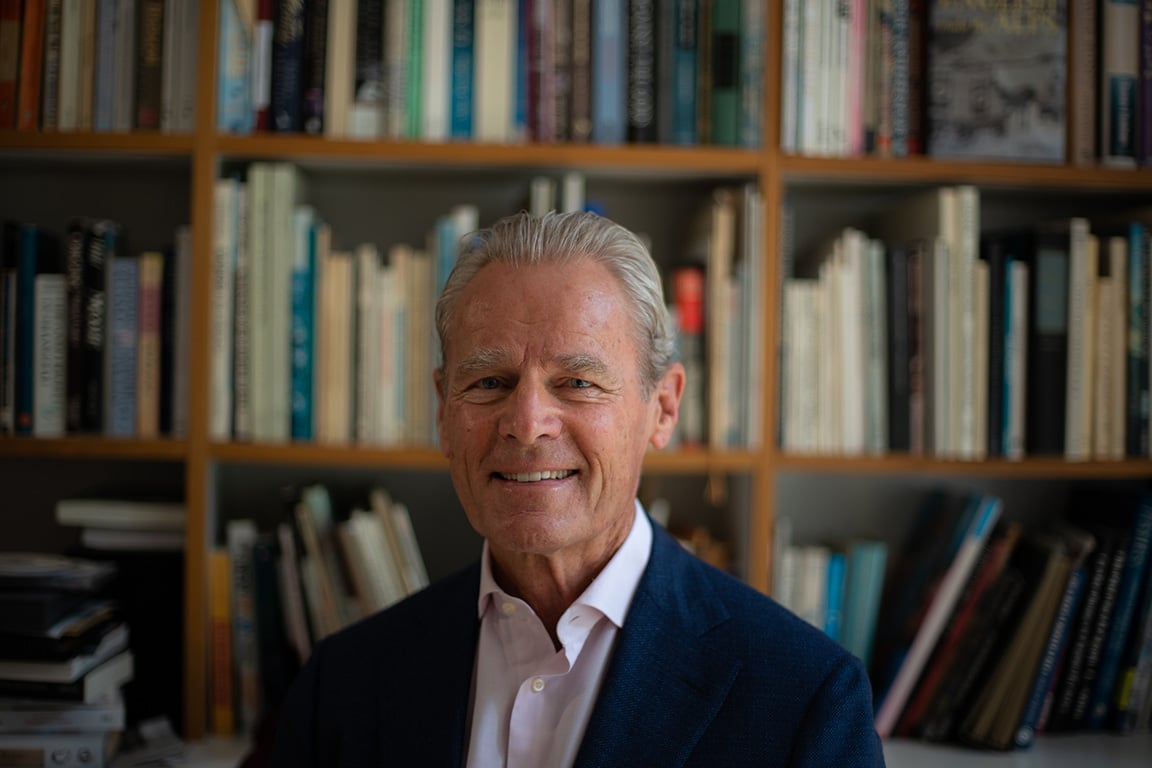For Jack Lowe, fitness and health had been a huge part of his life. Then one day in 2013, without any warning, he collapsed in pain, completely immobilized. His mind raced — was this to be the end? Would he ever walk again? Insistent investigation on his part yielded a diagnosis of acute spinal stenosis. His condition needed immediate attention or the result would be a permanent disability. Surgery and rehabilitation allowed him to walk again, slowly at first, then more deliberate with time.
As he was recovering, what struck him most was the prejudice associated with his age. He was up against the common belief that after a certain age there is very little effect that one can have on one’s body. In his seventies, he set out to prove how wrong that belief was. As he grew stronger, there were two things that struck him. First, that surprisingly few people his age shared his desire to stay fit. Secondly, that these widespread opinions on fitness at his age were not only misguided but harmful. He knew that the human body was an incredible thing that could bounce back from nearly everything if the correct effort was made. He made it his mission via founding the Fit For Life Foundation, to bring this message to others. The Fit For Life Foundation’s statement of purpose is “improving the quality of life of older people in aging societies worldwide by supporting life-long fitness and independent mobility. For a world where everyone can stay active and healthy, regardless of age.”

Human life spans are expanding, and according to many scientists, about to take a huge leap forward. As this happens, it is vital that we first understand that fitness into advanced age is possible and that we all take steps toward making it happen for ourselves, thus setting an example for those around us. Our fitness is not just for us, but to show and radiate to all those around us that they too can be fit if they follow some simple steps.
I am 79, and will be 80 in December of this year.
This really woke me up. I didn’t think of myself as old. I didn’t imagine that I could be feeble or handicapped. So we quickly sought out several opinions by experts, and found that I had a spinal stenosis, arthritis in the spine, and very advanced. A whole group of nerves were pinched in one go, and an immediate operation was needed to release and preserve the nerves running down my leg. Three days later I was operated so as to not lose the nerve ends. Haste was of the essence, and I was lucky.
Non-communicable diseases are those that you do not catch, but they occur over time due to your lifestyle. In the modern world, we are lucky to have a high degree of comfort, but this leads to a sedentary lifestyle. Instead of walking, we drive. Instead of standing, we sit. To be entertained we pass hours in front of the TV. At work we are also stationary, sitting in front of a screen. This leads to weight gain, to metabolic disorders like Type 2 Diabetes, to cardiovascular troubles, pulmonary problems, and even 12 types of cancer! These co-morbidities reduce our ability to ward off illnesses, as the Covid epidemic has shown. The only way to avoid them is to stay in top physical shape.

Why don’t more people choose to have a physically active lifestyle?
I think most people have adjusted to their comfortable life, where normal physical activity takes a back seat to a new way of living, where mechanical devices are the norm, and they spare us from excess effort. We are living longer thanks to surgical advances and efficient pharmaceuticals, but are we living better? I think not.
“An active lifestyle can be chosen for better physical health and protection against NCDs, but will also keep our brains working, alert, and innovative”
What is it that we need to change about how we view age?
An active lifestyle can be chosen for better physical health and protection against NCDs, but will also keep our brains working, alert, and innovative. Active people are not limited in what they can do, are mobile, have fun and interests, and clearly get more out of life than inactive people. I think that we, as elders, need to realize that we will someday die, as all humans will. But it isn’t clear to most of us that better health pushes out that fatal date, and if we are going to live longer shouldn’t we live better?
How do you feel hormones are positively affected by exercise programs?
I am not a doctor, but from what I read, the more you exercise, the more you increase your level of endocrines, which lift your spirits immediately. It is also well-known that as we age, we lose hormones. These hormones regress at a much slower rate when we exercise, particularly intensive exercise. Even older people can keep a good hormonal balance, and this is the best way to avoid NCDs.

4 Pillars of Health
What are some of the key pillars people need to incorporate into their fitness?
The pillars are clear: 1. Don’t gain weight and if overweight shed the excess. 2. Eat the foods that are good for you, but only the quantity that keeps your weight stable. 3. Exercise 6 days a week (we all need one day off!), including stretching and flexibility, strengthening the core around your waist, and floor exercises. Then 3 times a week work on resistance (weights), and aerobic exercise (cycling, jogging, nordic walking) with intensive intervals from time to time. 4. Spend time with your friends including, if possible, exercise routines with them.
Fear is a formidable obstacle for many of us starting anything new. How do you suggest one deal with that?
Fear of failure, of “looking bad” as the person least in shape in a group, blocks a lot of people from starting an exercise program. This is one of the objectives of our foundation: finding ways to convince reluctant people to give it a go, and to keep at it.
You have a section in the book titled “Rest is Overated.” What do you mean by that?
Rest really is overrated. Some readers of my book disagree totally with this statement. But the only rest that really counts is the one that rehabilitates the whole body and mind: 7-8 hours of sleep at night. If we sleep well at night we do not need a siesta during the day! Sleeping well allows us to use the day productively and actively.
“The community of friends and individual friendships are essential to our wellbeing”
I have been told that if there are 10 secrets to a longer healthier life, the top 3 are around community and meaningful relationships.
I agree totally that the community of friends and individual friendships are essential to our wellbeing. Just look at how many people were depressed during the Covid epidemic simply by not seeing their friends. Even staying in shape is less fun and effective if at least part of the effort is done with other people. Without friends, we are more irritable and solitary. Without friends, some people will not even contemplate the next step to get fit. We need to do what others do, and vice versa.
Are you still climbing mountains and bicycling long distances?
Since my last bicycling accident (one of many) where my shoulder was in pieces and had to be surgically repaired, I have not done much climbing. But now, after more than a year of rehabilitation, I am ready to start making more climbs in 2022, first close-by in Europe and then elsewhere if I am up to it.

Heroes
Who are your heroes?
My heroes in the physically fit category: Marcel Remy, 93-year-old Swiss mountain climber from Montreux, who climbed the famous wall Le Miroir at age 17, then did it again at age 93. Roger Federer, who played great mens’ tennis longer and better than anyone in history. And who did it like the gentleman he is. Louise Aronson, MD at the University of California Hospital, who wrote the only bestseller in the publishing world focussed on older people entitled Elderhood which highlights the need to pay more attention to elders with the ambition to improve their lives.
What are your adventure goals for the next couple of years?
Here is to-do list of adventures:
-Swim across the Lake of Geneva
-Cycle through the Dolomites
-Fly fish for a few big ones in the Colorado River and putting them back in the river so someone else can have some fun fishing.
-Lobbying with the management of the Tour de France to organize a vastly shorter Tour for older cyclists with three classes: 70-79 years, 80-89, and 90-100

Read more about how to be Fit For Life in Jack’s book here, and the Fit for Life Foundation.
LEAVE A REPLY
The ideas expressed here are solely the opinions of the author and are not researched or verified by AGEIST LLC, or anyone associated with AGEIST LLC. This material should not be construed as medical advice or recommendation, it is for informational use only. We encourage all readers to discuss with your qualified practitioners the relevance of the application of any of these ideas to your life. The recommendations contained herein are not intended to diagnose, treat, cure or prevent any disease. You should always consult your physician or other qualified health provider before starting any new treatment or stopping any treatment that has been prescribed for you by your physician or other qualified health provider. Please call your doctor or 911 immediately if you think you may have a medical or psychiatric emergency.
AUTHOR

We will never sell or give your email to others. Get special info on Diet, Exercise, Sleep and Longevity.

Love you Jack , I’m with you on fitness and ageing.
Agree
Super inspiring. Thank you for helping more people to see that physical decline is not inevitable. There’s a lot we can do to improve our lives at any age.
Simply inspirational!
Jack: I’m a 68 year old Senior Olympian who has tackled and overcome several medical issues as you have. Your outlook on fitness and life parallel mine, and I hope to be the man you are at age 80. Keep up the great work!